Ergon Update – July 2023
Posted by Catherine Morgans
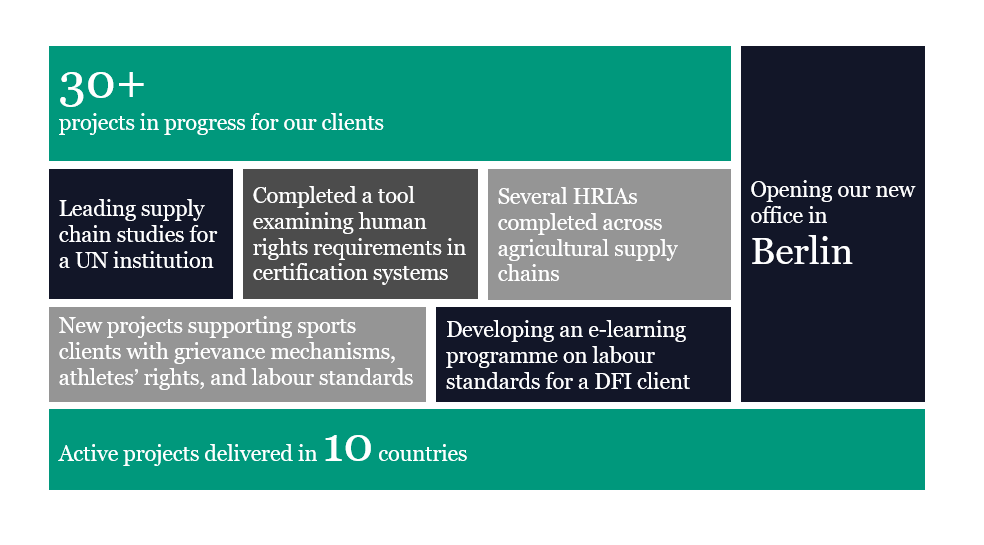
Welcome to Ergon’s regular newsletter, covering our recent work supporting clients on human rights, labour standards and gender. The graphic above provides a snapshot of our work from April to June 2023.
New developments at Ergon
Ergon Germany
We are delighted that our German subsidiary, Ergon Associates GmbH, is now up and running, based from a lovely office in Schöneberg, Berlin. We currently have three staff there: Laura Curtze, Macduy Ngo, and Felix Sternagel. We look forward to working more closely with our existing German clients and developing our service offerings in this dynamic and growing market. For any questions or inquiries, please contact our Managing Director in Berlin Macduy (Mac) Ngo.

Laura Curtze – Associate Director
We are delighted to announce the (re)arrival of Laura Curtze as our new Associate Director. Laura brings a wealth of experience on business and human rights. She was previously the Director for Human Rights and Labour of the UN Global Compact Network Germany’s social sustainability programme and Deputy Executive Director. In this role she represented the Network in engagements with national and international stakeholders from business, civil society and public sector and the development and delivery of programmes aimed at supporting companies in implementing human rights due diligence, significantly raising the Network’s profile and reach and building new partnerships.
As Associate Director, Laura will play a key role in growing Ergon’s Berlin office alongside our wider human rights due diligence practice as well as contributing to our overall organisational strategy and development

Publications, projects and case studies
Rainforest Alliance – Grievance mechanism study
Rainforest Alliance (RA) has published our research study on the implementation of operational grievance mechanisms by certified farms and groups, undertaken during 2022, and involving a rigorous review of survey data, eight in-depth case studies, the views and perspectives of RA Certificate Holders (CHs) – farms and groups of companies – across 12 countries.
Our findings highlighted that the majority of CHs have grievance mechanisms but that these are at an early stage of maturity. Many CHs find it difficult to receive complaints – a result of low trust, alack of awareness and/or limited availability of complaint raising channels. Despite this, there is evidence of steps taken by CHs to strengthen grievance mechanisms and we identified examples of emergent good practices that underscore the need for senior management buy-in and investment into improving grievance handling procedures. We’re delighted by RA’s commitment to transparency by publishing this report. Click here to access our detailed findings and here to read RA’s response to the report. Please contact Matthew Waller for more information.
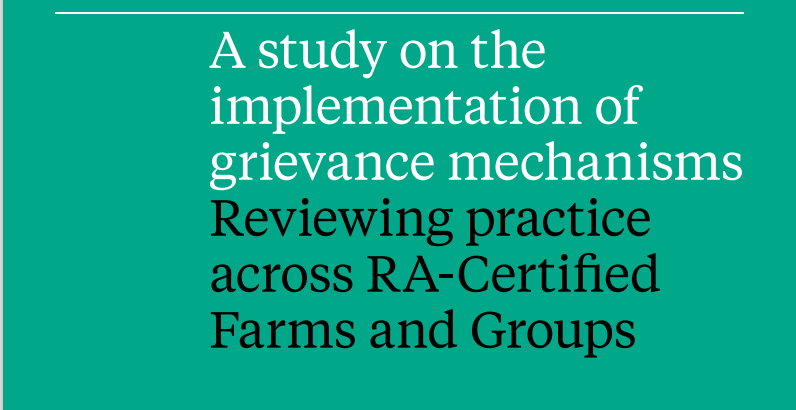
UN Global Compact – Living Wage analysis tool
Ergon supported the UN Global Compact’s Think Lab on Living Wage to develop an online analysis tool. The tool helps companies assess their progress toward paying a living wage for their employees and to ensure that pay for contractors and in supply chains enables them to meet basic needs for themselves and their families. The assessment framework is based on International Labour Organization (ILO) standards, the UN Guiding Principles on Business and Human Rights, and leading good practice examples on implementing them. The tool is free to use, confidential, and contains links to numerous other toolkits and guidance on living wage.
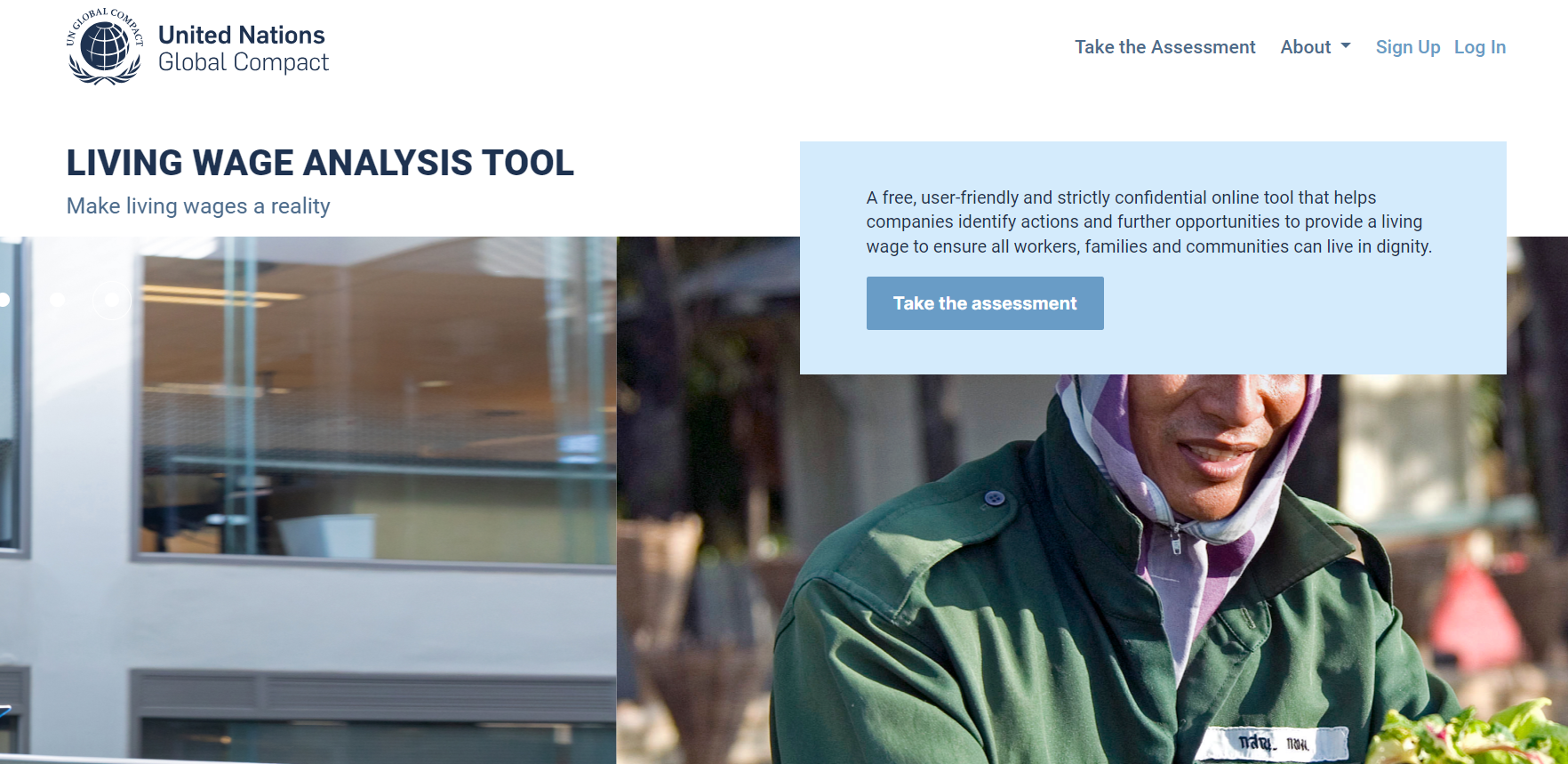
Sesame seeds from Sudan: human rights impact study
Ethical Trade Initiative Sweden (ETI Sweden) has published a human rights risk and impact study on the sesame seed supply chain originating in Sudan, researched by Ergon. The study identified the most salient human rights and social impacts affecting farmers, workers, and farming communities across sesame production in Sudanese areas from which ETI’s member companies source.
Key salient risks included: forced labour, child labour and discrimination, among others. The findings will support due diligence in this long and complex supply chain – which currently has limited ethical trade or responsible sourcing interventions in place. This is vital in conflict-affected regions, such as the sesame production areas in Sudan, where businesses have a duty to conduct ‘heightened’ due diligence in relation to operations or business relationships. ETI Sweden is mobilising broadly to discuss how the industry can work together to address human rights risks, not only in Sudan, but also in other origins. ETI Sweden encourages stakeholders interested in this work stream to get in touch. Contact Brett Dodge for more information
Supporting clients to measure progress on human rights
We are supporting a major international corporate client on strengthening their processes for measuring and demonstrating progress on human rights. While tracking progress is an integral part of human rights due diligence, we see many companies facing challenges in their move from measuring activities (such as the number of people participating in a training on human rights) to assessing actual outcomes of their activities (such as the effect of training on changing behaviors or mitigating impacts).
As part of this project, we have conducted extensive engagement with internal company staff to understand which metrics are currently being used across different departments and where opportunities exist improve the measurement of progress on human rights. Combined with our understanding of good and emergent practice across businesses in different sectors, this will inform our development of a roadmap with recommendations to the client. Please contact Laura Curtze for more information.
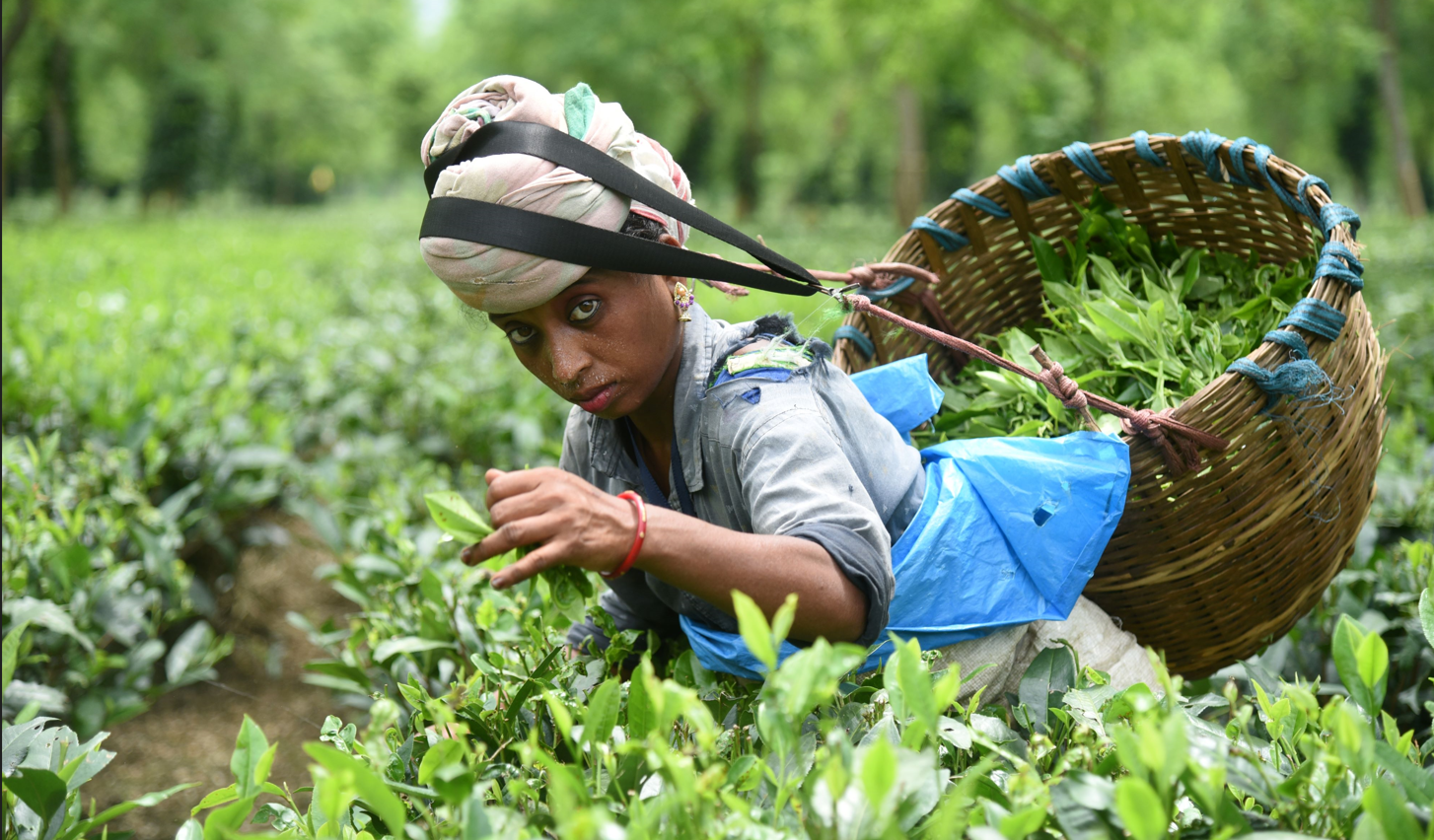
Human rights due diligence: HRIAs and more
We have successfully completed five new agricultural HRIAs this year – with several exciting ongoing exciting opportunities in the pipeline for our clients in the food, hospitality, logistics, and energy sectors. We’ve also been really pleased to see clients publish work from our recent HRIAs, as well as their subsequent action plans – including an HRIA on pulses from Argentina for Princes Limited and on tea from India that we conducted for ALDI Nord.
In addition to HRIAs, we continue to support a range of clients on human rights due diligence in other ways, such as gap analyses against regulatory requirements, and risk profiles and briefings – focusing in on priority geographies, sectors, and supply chains. For example, we have recently completed a risk assessment of the Brazilian cocoa sector for an international food sector client. This risk assessment will serve to highlight key risk issues to address in corporate mitigation actions going forward. Please contact Brett Dodge and Catherine Morgans for more information.
Blog: The state of play on modern slavery
To mark International Workers Day (May Day), Ergon Consultant Genevieve Auld reflected on the current situation for modern slavery legislation in the UK and beyond, and what we can expect from future regulatory and company action. The blog considers the Modern Slavery Act within the context of broader mandatory human rights due diligence legislation passed in other countries, and reflects on how recent UK government policy re-orientation on modern slavery may impact the Act’s effectiveness going forward.
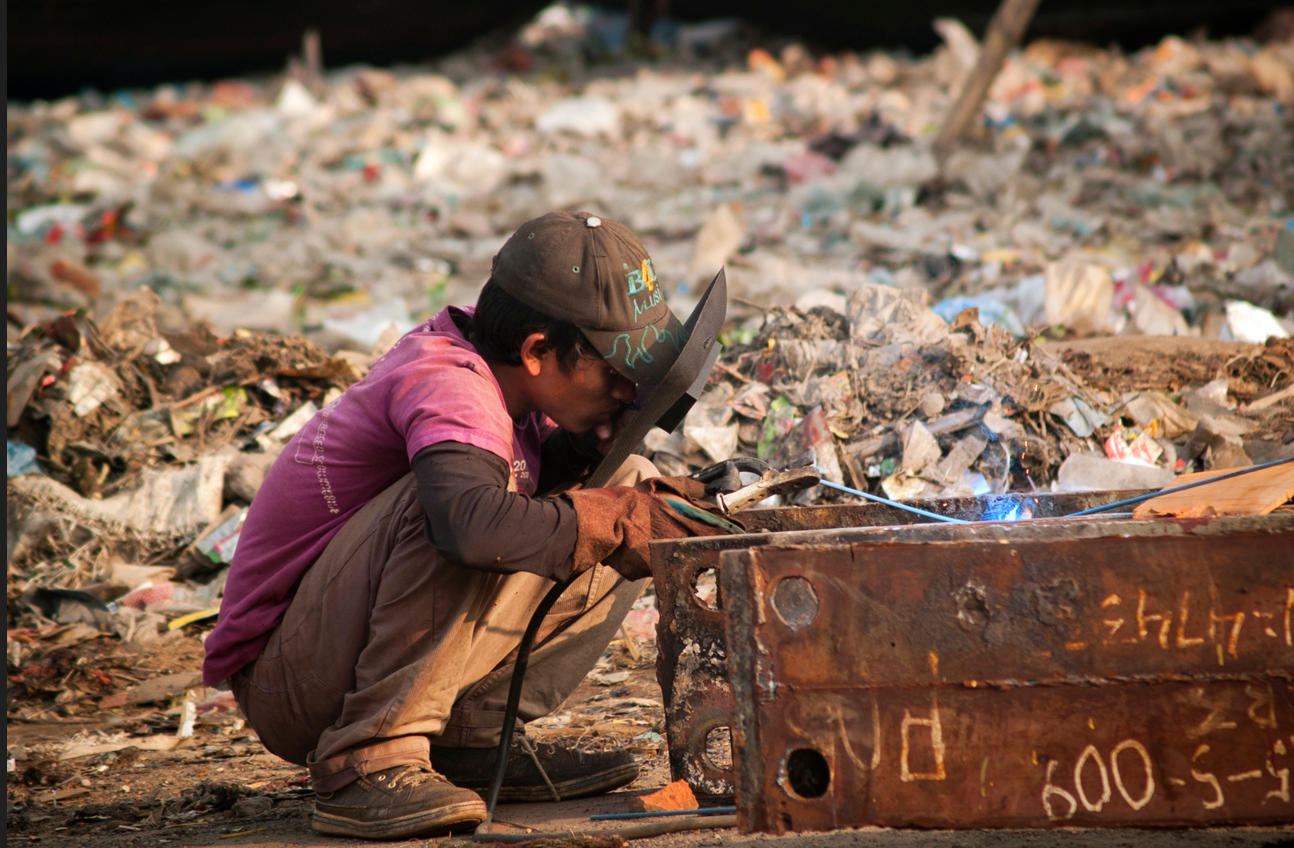
Get in touch!
Ergon has a near 20 year track record and works with leading companies, investors, public institutions, certification bodies and multi-stakeholder initiatives to understand risk, identify impacts, implement remedy, and track progress on human rights, labour and gender issues. We would be delighted to hear from you to discuss how we can support your organisation.